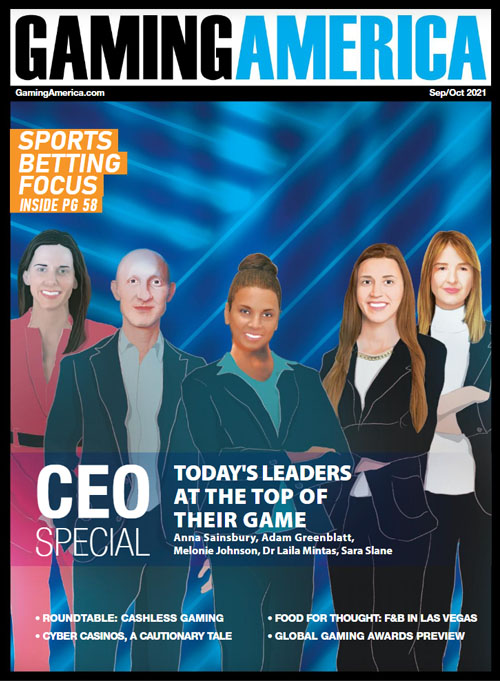
Stephen Crystal, CEO and founder of Las Vegas-based SCCG Management, a consultancy specializing in sports betting, igaming, intellectual property protection and casino management among other sectors, goes into the priorities and investment required to align more effectively with professional sports in order to engage better with consumers.
Despite the challenges faced by professional sports over the last 18 months, partnerships with the gaming industry, specifically in the sports betting and igaming categories, have never been more active.
The first NFL team to partner with a gaming operator was the Dallas Cowboys, with Oklahoma’s WinStar Casino. MGM was the first gaming operator to partner with pro sports at the league level with their NBA partnership in 2018. These were the first drops in the torrent of industry sponsorship dollars to professional sports leagues to follow.
Today, the NFL has league partnerships with DraftKings, FanDuel, Caesars and Genius Sports. The NHL signed up with PointsBet and Bally’s. The NBA and MLB have deals with Fubo and Bally’s. The PGA Tour has DraftKings, FanDuel, PointsBet, BetMGM and theScore as official betting partners. Furthermore, in the world of soccer, half of the 20 clubs from the Premier League wore sports wagering company logos on their jerseys.
From UFC to NASCAR, everyone in professional sports has staked out relationships with sports betting and sports media groups.
In the US, sports betting sponsorships have been worth around $400 million to leagues and teams of the NFL, MBA, MLB, NHL and MLS alone. These new revenue channels were beneficial to the institutions that saw significant hits to their revenues because of the Covid-19 pandemic.
These are massive investments by the sports wagering industry. So what is driving this competition? These investments benefit both parties tremendously. An average Premier League game draws around one million viewers alone. This is a massive number of impressions made for the sports wagering companies and their over $2 billion market in the UK alone.
The power and impact of professional sports sponsorships are driving participation across all sectors of business. Recently, financial services, IT, telecommunications and the auto industry have been stepping up their pro sports sponsorship spend, actually squeezing out investments from igaming entities, reducing their footprint within the space by as much as 50% in some markets.
Competing market forces aren’t the only thing that could edge out gaming industry investments in professional sports sponsorships. Since January 2020, the UK government began considering a blanket gambling sponsorship ban, similar to their earlier tobacco ban. Right now, the industry argues that the Covid-19 pandemic has caused massive losses in revenue streams. If not for these new investments from sports wagering firms, a considerable number of clubs would fold. Over time, however, they argue that they can reduce their dependence on gaming company revenues as the economy improves in a post-Covid world. For now, it seems like this argument has prevented action by the UK government.
As long as legislation and market-based competition for pro sports sponsorships permit the gaming industry to forge these partnership relationships with professional sports leagues, we are sure to see greater depth of investment, as well as a broadening of investment into emerging and niche sports entertainment.
The ability to build marketing campaigns that target avid fans and generate powerfully engaging activity with consumers makes these massive investments pay off. That said, these partnerships haven’t been painless.
For example, in April, 2021, Genius Sports became the official distributor of NFL data in a deal worth around $120 million over a six-year agreement. Genius will recover the cost of this deal by increasing the fees they charge to operators for access to their data.
One year of this pass-through cost represents $20 million in increased operating expenses to US sportsbooks. This represents around 8% of their NFL betting revenues. It’s not trivial. It’s going to be around a 400% increase in operating expense for that data in previous years. It’s unclear whether there’s any practical alternative for sportsbooks other than to pay up. This is because these partnerships continue to make sense, especially for the gaming industry.
Fans want more: more content, and more ways to engage with their players and teams. Gaming companies are much better equipped to feed this synergistic cycle than traditional non-wagering industries. We can bring fantasy sports to the table. We can implement virtual sports, creative proposition bets, and in-play wagers to enhance and extend the existing sports content, even beyond the league’s event calendar.
The pinnacle of this synergistic expression would be the active cooperation of the pro sports leagues, sports wagering, fantasy sports, virtual sports categories, as well as the media companies. Together, they can create an unbeatably robust ecosystem of fan engagement. It is hard to see a future where this convergence doesn’t happen in a significant way.

